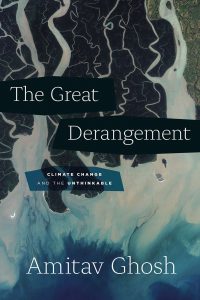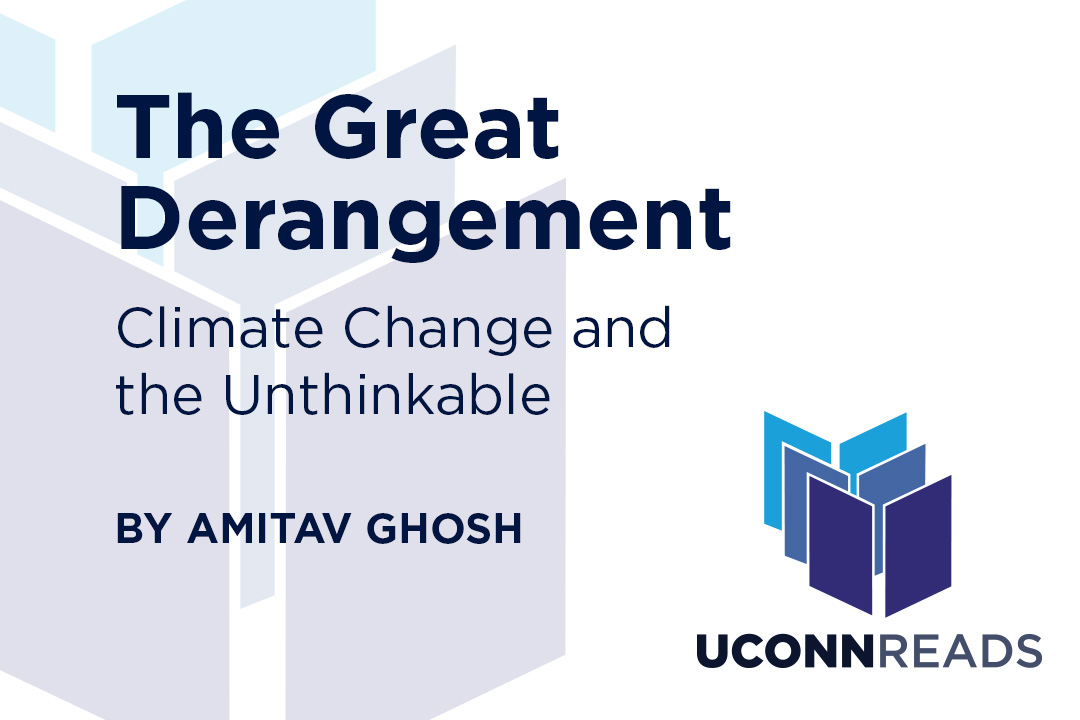At a moment when out-of-control wildfires and devastating hurricanes are the stuff of daily headlines, climate change is looming larger in the national conversation, a development that will be furthered during the academic year by the selection of Amitav Ghosh’s “The Great Derangement: Climate Change and the Unthinkable” for UConn Reads 2020-21.
Ghosh, an Indian-born novelist known for the lauded Ibis Trilogy and other works, wrote “The Great Derangement,” a non-fiction work, as an attempt to explain the “imaginative failure” of contemporary society in coming to grips with the scope of the challenge presented by climate change.

“One of the reasons climate change is ‘unthinkable’ is because there’s a long history of assuming the world has been more or less the same forever, and only changing gradually according to a set of well-known laws,” says Michael Willig, board of trustees distinguished professor of ecology and evolutionary biology, executive director of the Institute of the Environment, and the chair of the UConn Reads Steering Committee, that is involved with programming activities that are related to the book.
“In fact, we know there have been a lot of unpredictable, extreme events that have changed the course of life on earth, and that climate change isn’t just ‘business as usual,’” he says.
Willig says the selection is an ideal choice for the University not only because of its topicality, but because Ghosh’s work touches so many different spheres – art, social science, biophysical science, engineering, law, health, business, and more.

“One of our goals is to encourage the inclusion of a broad range of diverse perspectives from a whole range of fields in thinking about a problem that’s one of the most pressing issues facing society in the 21st century,” Willig says.
That extends not only to students, faculty, and staff on all UConn campuses, but to alumni, donors, and Connecticut residents at large, Willig says.
“This influences the long-term trajectory of our entire society in the U.S. and the world,” Willig says. “This is really a book for everyone.”
The UConn Reads Steering Committee – consisting of students, faculty, and staff members – is currently planning a number of activities around the book for the academic year, including hosting Ghosh for a formal virtual presentation and extended discussion; supporting guided discussions for groups of individuals reading the book; working with the Office of the Provost and University Communications to offer the UConn community a chance to react to the book across multiple platforms; and encouraging the inclusion of the book in readings for a variety of classes.
Regarding the selection, UConn President Thomas Katsouleas says “UConn is well positioned for an extended meditation on the significance of Ghosh’s book. Our faculty and students are engaged with climate change and its ramifications across a number of disciplines and research projects, that focus on the “big picture” as well as the effects of climate change we can see on our campuses.”
Further announcements of programming and events tied in with UConn Reads will be made via UConn Today, the University’s social media channels, and other means. For any questions or to share ideas about engagement opportunities, contact Michael Willig (michael.willig@uconn.edu) or the UConn Reads Steering Committee (uconnreads@uconn.edu).



